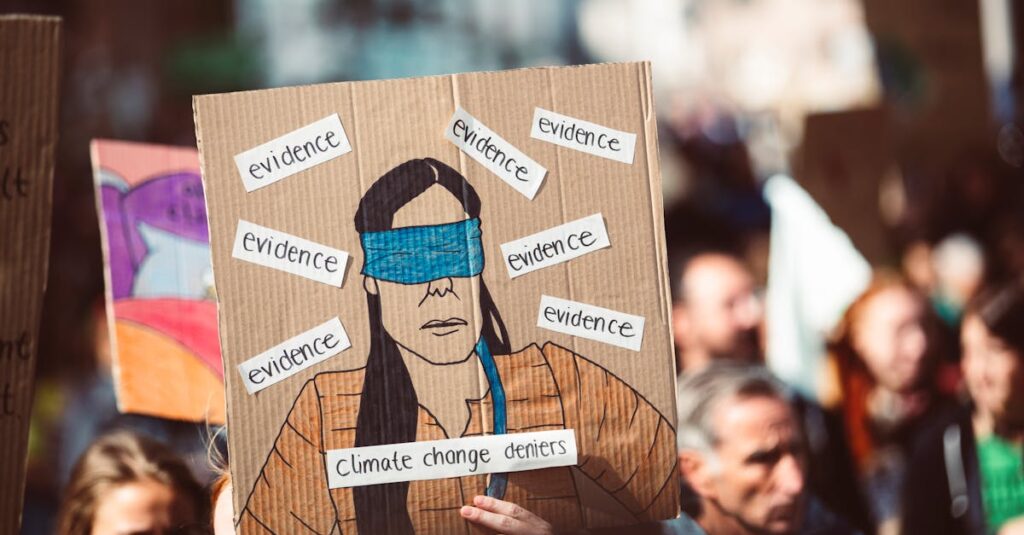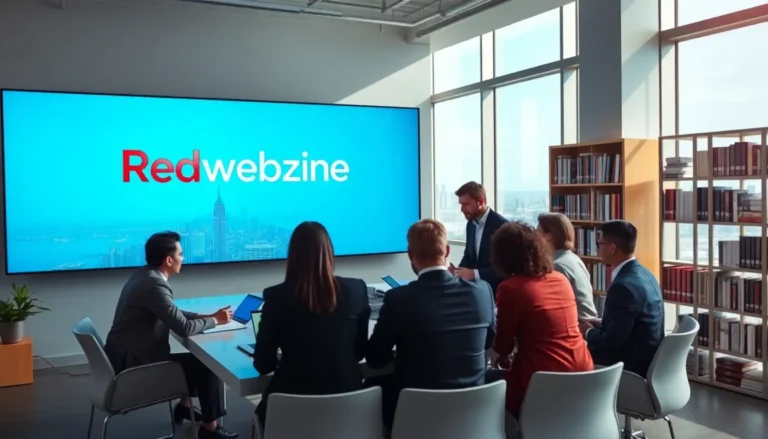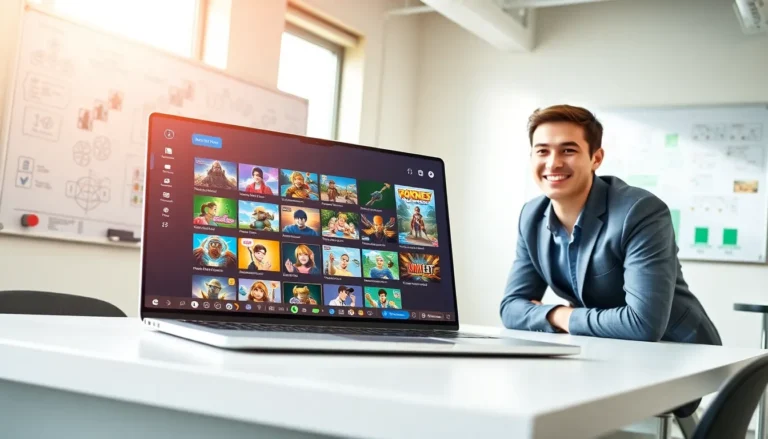Table of Contents
ToggleIn a world where politics can feel like a never-ending soap opera, understanding the key themes, actors, and issues is crucial. The Global Politics Reader isn’t just another dry textbook; it’s your backstage pass to the drama unfolding on the international stage. From power struggles to grassroots movements, this resource dives deep into the complexities that shape our global landscape, all while keeping it engaging and accessible.
Imagine navigating the twists and turns of global politics with a guide that’s both informative and entertaining. This PDF is packed with insights that’ll make you the go-to expert at your next dinner party—or at least give you some great conversation starters. Whether you’re a seasoned scholar or a curious newbie, this reader offers a fresh perspective on the forces that influence our world, making it a must-have for anyone interested in the art of politics.
Overview of Global Politics Reader
The Global Politics Reader serves as an essential resource for individuals eager to understand international politics. It presents key themes like power dynamics, globalization, and conflict resolution, illuminating how these elements interact. Many actors influence global politics, including state and non-state entities. This reader highlights the roles of governments, international organizations, NGOs, and multinational corporations.
Complex issues such as human rights, environmental challenges, and economic inequality are also explored. By addressing these topics, the reader fosters a deeper comprehension of the multifaceted nature of global interactions. Various contributors provide their perspectives, enriching the content with diverse insights and analyses.
Engagement with real-world events is central to the reader’s approach. Readers will find discussions on current crises, providing contextual relevance to theoretical concepts. This connection to contemporary issues enhances the reader’s applicability for both students and activists.
Supplementary materials such as charts, graphs, and case studies bolster understanding. These elements provide concrete examples, illustrating abstract ideas in an accessible manner. Readers can expect to encounter thought-provoking questions and prompts designed to stimulate further exploration.
Overall, the Global Politics Reader aims to make the complexities of global politics navigable. It is designed to cater to varied audiences, from those new to the field to seasoned experts seeking to expand their knowledge. The reader’s engaging format and structured content promote a thorough understanding of international political landscapes.
Key Themes in Global Politics
Understanding the key themes in global politics provides crucial insight into international relations. Multiple aspects shape the dynamics at play in this arena.
Historical Context
Historical context plays a significant role in current global politics. Events such as the Cold War and the rise of colonialism profoundly influence contemporary power relations. These historical moments set the stage for ongoing conflicts and alliances between nations. Events like World War II reshaped borders and established new political entities, impacting today’s geopolitical landscape. Recognition of these events helps clarify the motivations of states and non-state actors.
Contemporary Issues
Contemporary issues highlight pressing challenges and opportunities within global politics. Climate change now emerges as a critical concern requiring cooperative international responses. Human rights violations in various regions continue to spur advocacy and intervention efforts. Economic inequality remains a significant topic, emphasizing disparities in wealth distribution among countries. Migration crises also reflect instability, prompting debates on national security and humanitarian responsibilities. Addressing these issues necessitates collaboration among governments, NGOs, and international organizations.
Major Actors in Global Politics
Understanding the major actors in global politics reveals the complexity of international relations. Key players include nation-states and non-state actors, each contributing to the geopolitical landscape.
Nation-States
Nation-states hold primary authority in the global political arena. They govern defined territories, maintain sovereignty, and engage in international diplomacy. For instance, countries like the United States and China wield significant influence through military power and economic strength. Alliances such as NATO and the European Union demonstrate how states cooperate on shared interests, impacting global security and trade. Moreover, national policies shape international law, affecting issues like climate change and human rights. The role of nation-states remains fundamental in addressing crises and fostering cooperation.
Non-State Actors
Non-state actors increasingly play critical roles in global politics. These entities include international organizations, non-governmental organizations (NGOs), and multinational corporations. Groups like the United Nations promote peace and development, while NGOs advocate for human rights and environmental protection. Corporations, such as Google and ExxonMobil, influence economic policies through lobbying and investment strategies. Their impact often transcends national borders, complicating diplomatic relations. Non-state actors contribute solutions to global challenges, underscoring their importance alongside traditional state-based power structures.
Critical Issues Addressed
“The Global Politics Reader” addresses several critical issues shaping international relations today. Climate change and human rights rank among the most pressing topics.
Climate Change and Global Governance
Climate change poses a significant challenge, demanding immediate attention from global leaders. It impacts ecosystems, economies, and communities, creating urgent political discussions. Governments collaborate within frameworks such as the Paris Agreement, emphasizing shared responsibilities. International organizations also play a vital role, facilitating negotiations and tracking compliance. Collaborative strategies often include renewable energy initiatives and sustainable development goals. Innovative policies drive the push for emissions reductions, illustrating how governance adapts to environmental crises. Crisis management frameworks emerge to address climate-related disasters, highlighting the need for coordinated global action.
Human Rights and Social Justice
Human rights violations continue to threaten stability worldwide, prompting increased advocacy. Non-governmental organizations actively work to protect vulnerable populations and promote equity. Many countries face scrutiny over practices affecting marginalized groups, including racial, ethnic, and gender minorities. Advocacy campaigns aim to raise awareness and foster accountability among states. International treaties recognize the importance of protecting rights, providing frameworks for legal redress. Grassroots movements mobilize local communities, driving social change through collective actions. Social justice initiatives highlight economic disparities and systemic injustices, demanding comprehensive reforms for lasting impact.
“The Global Politics Reader” stands out as a vital resource for anyone seeking a deeper understanding of international relations. By blending engaging narratives with insightful analysis it demystifies complex themes and issues. This reader not only appeals to scholars but also invites newcomers to explore the intricate dynamics of global politics.
With its focus on real-world events and diverse actors it fosters a comprehensive grasp of pressing challenges like climate change and human rights. The reader encourages critical thinking and dialogue which are essential for navigating today’s geopolitical landscape. Ultimately it equips individuals with the knowledge needed to engage meaningfully in discussions about the world around them.





